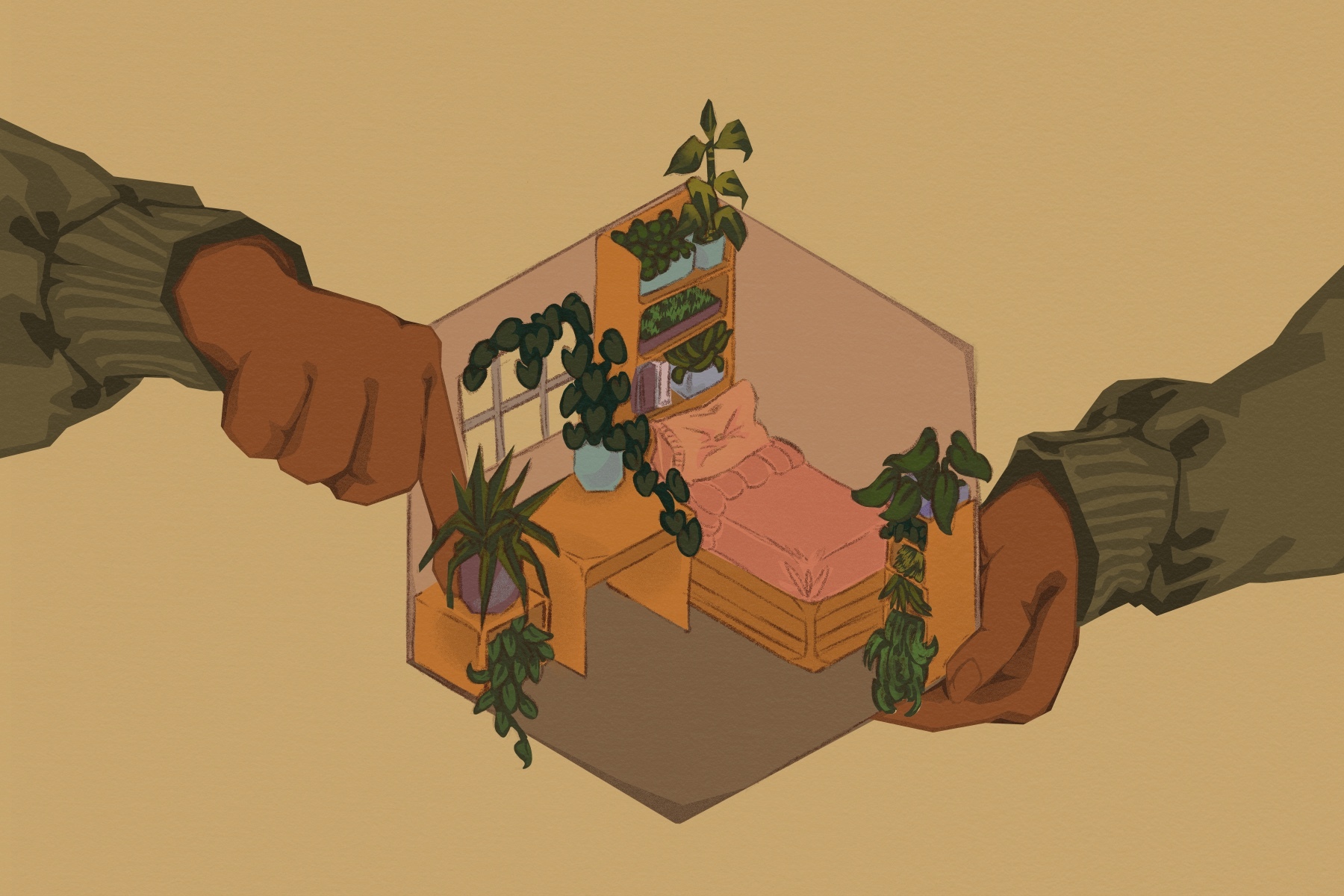A fact you’d only know about me if you live with me is that I have a very persistent, somewhat cruel sounding hobby. It takes up hours of my time and quite a bit of my money, too. For years one of my most impassioned hobbies has been murdering innocent houseplants in search of one I could raise successfully. If you google “indoor gardening tips,” “easiest houseplants to grow” or “how to grow plants indoors,” I can almost guarantee I’ve read the first dozen or so articles that will appear. I haven’t just read them, either, but tested most of them out firsthand. I am all too familiar with the effects of overwatering, underwatering, nutrient deficiency and sunburn; an endless void of ecosystemic drivel surrounds me.
The fact of the matter is that no single list of advice will keep your plant alive or give you every tip you need, and I’m not claiming that I can either. There is some knowledge that must be learned from experience, which goes beyond what many of these articles articulate. My personal experience with holding plant propagations and funerals alike has taught me more than any article ever could. I have a few key secrets that most articles don’t divulge, and I’m going to share those with you today.
1. Things Won’t Grow in the Wrong Environment.
First, it’s essential to realize that plants are like humans: they won’t grow in the wrong environment. Chances are, you’ve experienced circumstances where your growth wasn’t adequately provided for, even though the situation could technically allow it. Your personal, emotional or mental growth probably felt stunted or even reversed, which is exactly how a plant feels in an insufficient environment. You can’t grow a tropical plant in an area that isn’t conducive to a tropical climate, nor can you grow a cactus in a swamp. When it comes to indoor gardening, it’s important to select a plant that will survive in your home. You can’t help the environment you provide, but you can ensure that you pick the right plant to flourish in those conditions. In order to grow as a person you must situate yourself in an appropriate environment, and plants are no different. You cannot expect a living thing to grow strong and healthy in an environment that doesn’t meet its needs.
2. Deprivation Kills.
“Drink some water” is so over-suggested as a cure-all for depression that it isn’t even funny. It’s also the first resort for saving a plant’s life. From experience, however, I can tell you that it’s usually not what you or the plant need. When plants receive too much water, they can also die. Their bodies are fragile like ours, so they must be provided with a delicate, personalized mixture of care. Plants need food, sunlight, air and nutrients. A plant can technically survive with minimal levels of these, but think about yourself. Don’t you live a much happier life when you have both what you need and what you want in abundance? The same applies to plants. Of course, all living beings need water, but an abundance of love, care and joy is also necessary for people and plants to grow beyond frail little bodies that survive day-to-day. Before you get a house plant and begin your indoor gardening journey, make sure you can provide more than just water and light. You’ll also need nutrients, better soil, bigger pots and maybe even pesticides. Most plants don’t come from the store equipped to survive.
3. You Don’t Have To Be Perfect.
A few missed waterings or even plant deaths are expected, and it’s nothing to beat yourself up over. Unless you’re incredibly lucky, the first few plants you get probably won’t endure more than a couple of weeks. Much like any other hobby, indoor gardening takes a lot of trial and error to see results. This is a lesson you’ll have to learn at some point in your life, and if you plan to begin indoor gardening, that time is now.
In my opinion, however, your indoor gardening experience will be a lot less painful if you start with these resilient plants:
- Saguaro cactus. I’ve personally owned and not touched one of these for months and he’s thriving!
- Christmas cactus. If you’re in doubt, let it dry out; these plants will bounce back from any level of underwatering you throw at them.
- Haworthia succulents. Sometimes they even produce little babies in the same pot that can grow into additional plants!
The Root of the Problem
I haven’t drawn a comparison between plants and humans for no reason. Taking care of yourself is kind of like taking care of a plant: it involves a lot of trial and error; you’ll probably mess up several times. It can be hard and make you want to quit. Your body is your home, and just like a plant, it needs love and care. The most important lesson I’ve learned from indoor gardening is how to take care of myself. On days I have wanted to stay in bed, getting up to water a plant kept me going. Talking to my plants gave me a reason to keep speaking when nothing else did. My first plant’s death brought me an intense amount of sadness, but the first plant I kept alive for years filled me with pride. It made me realize that not everything is so complicated, and that I’m just another part of nature that needs love.
Plants have the power to change and shape us. Learning to take care of something else can be a gateway to helping you take care of yourself. You can take this article as a simple list of expanded gardening tips that explain why your past plants have died, or you can take it as a sign to get a houseplant and take care of yourself along with it. Indoor gardening is not just a phenomenal hobby, but also a life-changing skill that will help you grow and support yourself.

















